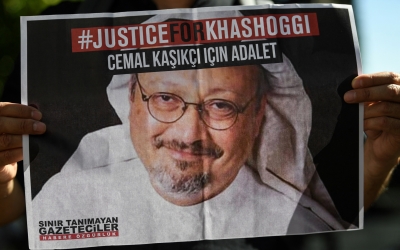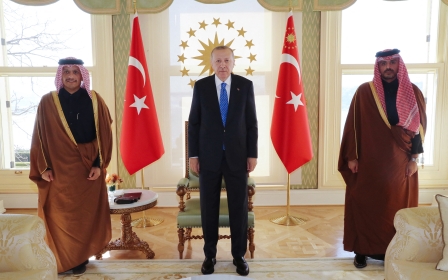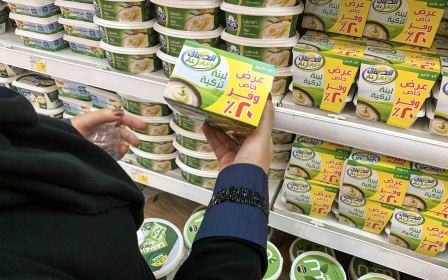Turkey's Erdogan to visit Saudi Arabia in February
Turkish President Recep Tayyip Erdogan said on Monday that he plans to visit Saudi Arabia in February following many years of tensions after the 2018 murder of Jamal Khashoggi.
Erdogan, after being approached by a Turkish businesswoman who complained about the diminishing exports to the Gulf state, is seen on a video posted on Twitter saying that he will try to resolve the issue once he goes to Saudi Arabia.
“They wait for me, they expect me in Saudi Arabia,” Erdogan said. “I will make my visit in February.”
Relations between Turkey and Saudi Arabia have been at a nadir since the murder of Saudi journalist Khashoggi, a Middle East Eye and Washington Post columnist whose killing is believed by the CIA to have been ordered by Crown Prince Mohammed bin Salman himself.
New MEE newsletter: Jerusalem Dispatch
Sign up to get the latest insights and analysis on Israel-Palestine, alongside Turkey Unpacked and other MEE newsletters
Riyadh rejects the accusation that the de facto leader oversaw what it describes as a "rogue operation".
Saudi businesses have endorsed an unofficial boycott of Turkish goods, resulting in a more than 90 percent drop in Turkish exports to the kingdom. Late last month, Turkey raised its concerns regarding this boycott to the World Trade Organisation (WTO).
A senior Turkish official, who is familiar with the talks between Turkey and Saudi Arabia, told MEE that Riyadh has become more serious about repairing ties with Ankara after Erdogan met Abu Dhabi's Crown Prince Mohamed bin Zayed in November.
'They approached us'
“We approached them in the past but they weren’t serious,” the official said. “This time they approached us. The Saudis felt like they have been getting excluded in this regional reconciliation. They would like to be a part of it.”
Turkey and the UAE repaired ties last year after nearly 10 years, with Saudi Arabia and Abu Dhabi also now reconciled with Ankara's ally Qatar.
These developments are all tied to the Biden administration’s policies in the region - especially regarding Iran - as neither the UAE nor Saudi Arabia wants to be left to stand alone against Tehran.
The Saudi government has been trying to force Ankara to drop the Khashoggi case, although several Saudi officials are being tried in absentia in Istanbul.
In November, the court decided to ask the Saudi government whether the 26 Saudi suspects had been tried and received sentences in Saudi Arabia.
In 2020, Saudi Arabia charged 18 suspects with involvement in the murder. Several were acquitted and only eight were convicted and sentenced to various terms in prison.
Turkish law suggests the suspects cannot be tried for a second time and receive repeated sentences, effectively opening the way for the case to be dropped.
In any circumstances, the Turkish criminal code indicates that trial in absentia cannot progress much if it involves murder as the suspects need to be in custody.
“We aren’t giving up anything to the Saudis on any diplomatic or political fronts,” the Turkish official said. “Everything progresses within the rule of law. And the result could make them happy and bring to an end to this friction.”
Middle East Eye delivers independent and unrivalled coverage and analysis of the Middle East, North Africa and beyond. To learn more about republishing this content and the associated fees, please fill out this form. More about MEE can be found here.





